Dear Friends and Neighbors,
Thank you to everyone who attended the second 29th District town hall on March 18th. It was wonderful to hear directly from constituents and learn more about the issues that matter the most to you. Getting out in the community is always a boost and I am excited to be able to connect more with you back in the district once the session ends.
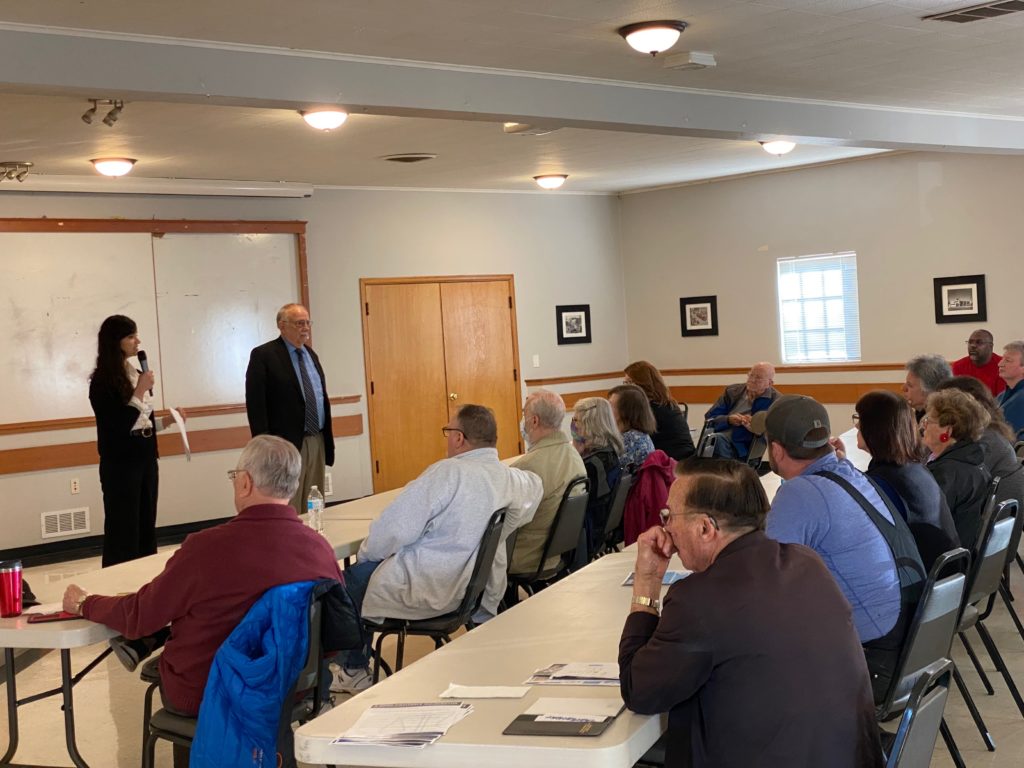
Happy César Chávez Day

March 31st was César Chávez Day in Washington State. Led by Latino Democratic Caucus (LDC) Chair Rep. Lillian Ortiz-Self, the Washington Legislature designated this day to commemorate Chávez’s work as a voice for justice, equality, and opportunity.
Chávez was a farm worker, labor leader, community organizer, and Latino civil rights activist who fought for representation and fairness. Along with Dolores Huerta, he founded United Farm Workers. Their contributions led to improved labor conditions for millions of farm workers across the United States.
Chávez and Huerta are an inspiration and a reminder that when Latinos organize, we can create massive change. It is in their tradition that we have founded the LDC. In celebration of César Chávez Day and Dolores Huerta Day on April 10th, we made a video with LDC co-chair, Rep. Bill Ramos. Check it out below.
Budget Investments
This week, House Democrats introduced our proposed “Resilient Washington” operating budget. It works to protect the most vulnerable Washingtonians while strategically maintaining high-priority investments despite reduced federal support. The Resilient Washington Budget invests in Washington’s people, lands and waters, workers and workplaces, and communities. With this budget, we ensure there are providers to care for individuals with developmental disabilities. We invest in our long-term care and home care workforce. We expand our commitment to public health and health care, including behavioral health care, reproductive care and gender-affirming care. This budget supports educators, students with specialized needs, and families who need early learning and child care.
Some of the major investments we are making include:
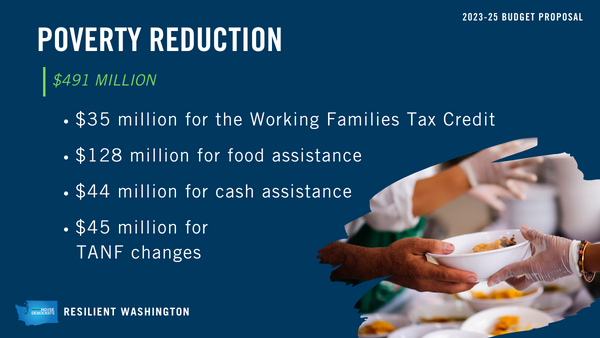
Human Services and Poverty Reduction: Even before the COVID-19 pandemic people relied on state programs to feed their families. In the most recent Washington State Food Security Survey of food insecurity, 55% of households have used food assistance in the last month. As Washington families recover from the pandemic many are still relying on food security programs supported by federal funds. House Democrats have heard from people across our state how critical these support services are, and that’s why we’re acting to protect those benefits even while we lose federal financial support. It is imperative that we do everything we can to help keep families from going hungry. This budget:
- Funds food assistance programs – $128 million
- Funds an 8% increase to TANF, ABD and other cash assistance programs – $44 million
- Eliminates ABD recoveries – $40 million
- Provides outreach and support for Working Families Tax Credit – $35 million
- Expands TANF including diaper subsidy and time limit extension – $45 million
- Provides funding for refugee support and education – $73 million
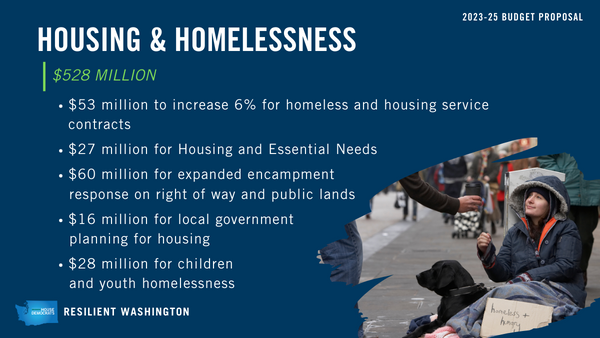
Homelessness and Housing: House Democrats believe that we must invest more in housing and homelessness. From working to right the wrongs of the past by providing assistance for first time homebuyers who hold identities that have historically experienced housing discrimination, to increasing funding for housing and homelessness assistance, this budget moves us forward on supportive housing and homeownership:
- Continues funding for emergency housing and rental assistance – $175 million
- Funds the covenant home ownership program – $150 million
- Allocates additional funds for encampment response and outreach – $60 million
- Provides a 6% increase to homeless services providers – $53 million
- Increases funding for Housing and Essential Needs – $27 million
- Funds local government planning for housing supply – $16 million
- Expands funding for children and youth homelessness – $28 million
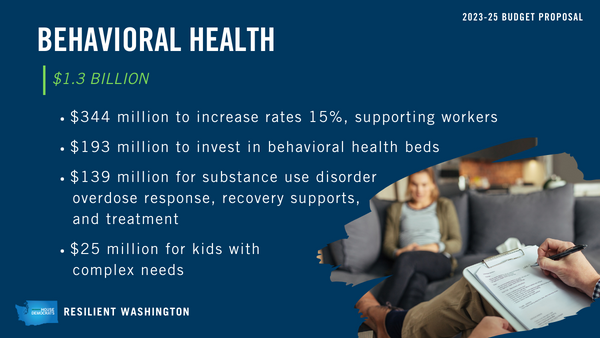
Behavioral Health: Last year, the Legislature jumpstarted the state’s behavioral health systems using federal ARPA funds. This year, House Democrats are proposing we build on past work to expand and strengthen the workforce who provide behavioral health care by increasing provider rates, as well as:
- Allocates funding for a 15% increase in rates to BH providers – $344 million
- Increases funding for additional bed capacity – $193 million
- Expands substance use disorder prevention and treatment – $139 million
- Provides funding for crisis, outreach, and diversion programs – $98 million
- Funds youth behavioral health – $25 million
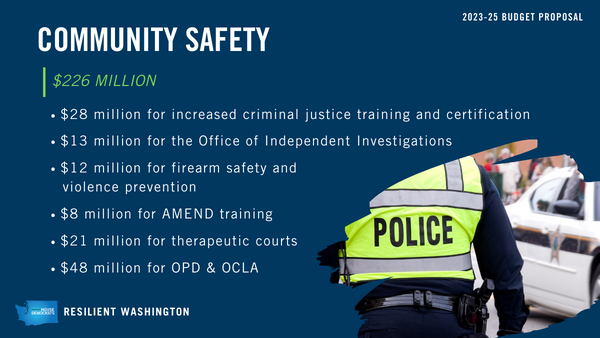
Public Safety, Legal Aid, and Corrections: Washington residents expect our legal system to be balanced, fair, and accessible to everyone. House Democrats are proposing increased funding for domestic violence services, Office of Public Defense and Office of Civil Legal Aid, and therapeutic courts. We’re also funding expanded firearm violence prevention grants. Ensuring we are training enough cadets from our law enforcement academy, funding independent investigations, and improving our criminal justice system is another step in how we provide the fair, equitable, and accessible public safety that families deserve. We’re adding new training locations and classes to this year’s Basic Law Enforcement Academy budget, so we can train more cadets under the new standards set under law.
- Expands domestic violence services – $61 million
- Provides funding for Office of Public Defense and Office of Civil Legal Aid – $48 million
- Expands criminal justice training and certification – $28 million
- Funds therapeutic courts – $21 million
- Funds the Office of Independent Investigations – $13 million
- Expands firearm violence prevention grant funding – $12 million
- Provides funding for the AMEND program at DOC for collaboration and training – $8 million
- Increases wages and gratuities for people who are incarcerated – $7 million
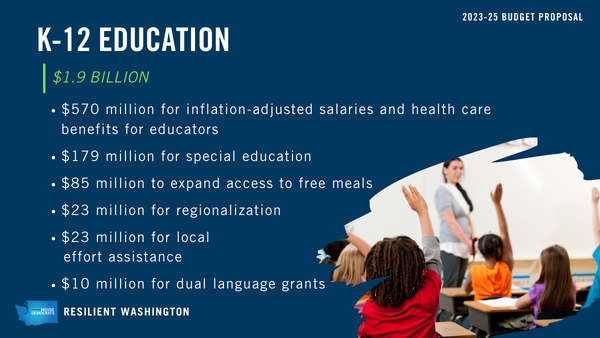
K-12 Education: Education, particularly special education, is a top priority this year. With $1.9 billion in new funding, we are investing in students, educators, and schools.
- Provides funding for inflation adjustment and health care cost increase for educators – $570 million
- Increases funding for supports for special education students- $179 million
- Expands funding for access to free meals for students- $85 million
- Funds local effort assistance – $23 million (FY 23 supplemental)
- Increases funding for dual language grants – $10 million
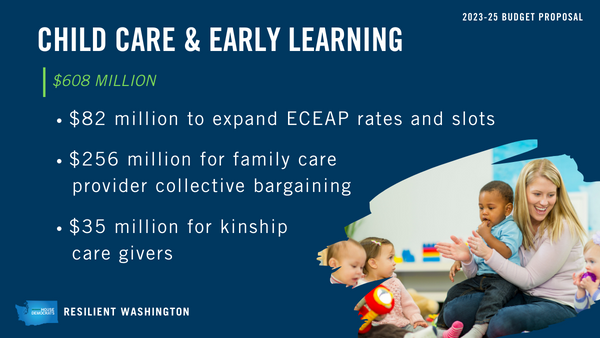
Early Learning and High-Quality Child Care: With the Fair Start for Kids Act and other expanded child care and early learning programs in past budgets, we are on our way to providing universal access to our Early Childhood Education and Assistance Program (ECEAP) by 2027 for qualifying families. This year, we’re adding $82 million for additional ECEAP slots and increased rates. We also have $256 million in the Resilient Washington Budget for our family child care providers.
- Funds family child care provider collective bargaining agreements to increase pay – $256 million
- Increases funding for kinship and relative caregiver support – $35 million
- Expands Early Childhood Education and Assistance Program slots and increases rates – $82 million
- Provides funding for the child support pass through – $11 million
- Increases funding for child care facilities to offer non-standard hours – $9 million
Washington Hospitality Grant

In the 2022 supplemental budget, the Legislature invested in our state’s recovery, including strategic investments in small businesses struggling in the wake of the pandemic. One such investment is the Washington Hospitality Grant, which offers financial relief for the hospitality industry through one-time grants for eligible restaurants, hotels, motels, and other small hospitality industry businesses in WA.
Those grants are now open, so apply today! Head to wahospitalitygrants.com to see if you’re eligible.
Thank you for reading my newsletter. Hearing from you is the most important part of my job. Please do not hesitate to reach out with your thoughts and ideas.
Sincerely,

Sharlett Mena
State Representative
29th District
